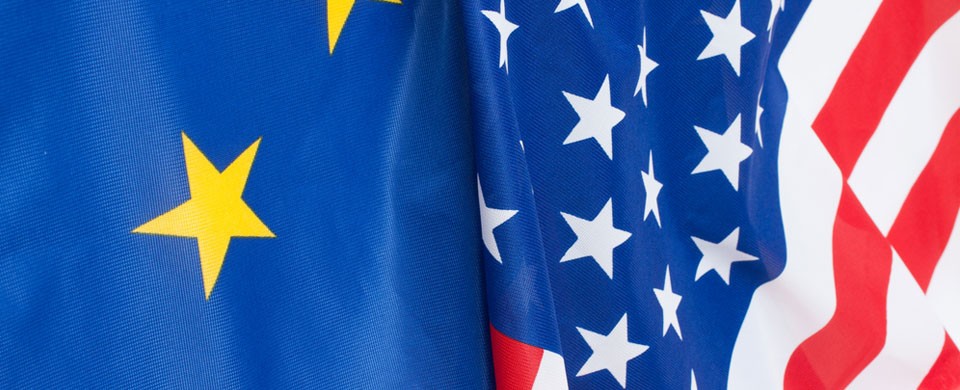New EU-US trade agreement is a threat to democracy
Imagine this. It’s 2020. The National Assembly for Wales has wider powers. One of the issues of concern is an alarming rise in alcohol addiction among under-age teenagers.
The Welsh Government takes action to introduce plain labelling of alcopops and tougher rules for retailers.
The public and all the parties in the Assembly support the measures, but a few months later a drinks company claims the policy is hitting its sales to legal drinkers.
It invokes provisions of the Transatlantic Trade and Investment Partnership (TTIP) – ratified in 2019 by the USA and EU – and sues Wales for compensation.
Behind closed doors, a tribunal appointed by the World Bank, under the TTIP’s Investor-State Dispute Settlement (ISDS) system, awards the drinks company £100m in damages.
Far-fetched? Not at all. Under trade agreements similar to TTIP, the tobacco giant Philip Morris has sued Australia and Uruguay for restricting advertising and putting health warnings on cigarette packets. New Zealand, meanwhile, withdrew laws on plain packaging after the Australia case.
According to the United Nations, by the end of 2013 nearly 600 known claims had been made by companies against governments under existing free trade agreements.
Of these, 85% were from investors based in developed countries, with US companies alone making 127 claims.
Respondents, on the other hand, were usually poorer countries: nearly three-quarters of all claims have been made against what the UN defines as developing or transition economies.
And the awards can be staggering. Ecuador, for example, was successfully sued for $1.77 billion over its termination of an oil concession after Occidental had illegally sold a stake to a third party.
This week, TTIP is due to be debated in the European Parliament. Battle-lines are drawn around exemptions from the trade agreement, including its possible impact on the NHS, and the controversial ISDS system, which bypasses the legal channels of the country being sued.
The Parliament does not have powers to stop EU-US negotiations on TTIP, or even to play an active part in them, but it will eventually be given a ‘take it or leave it’ vote on the final agreement, probably in 2019.
In the meantime, critics of TTIP in the Parliament are trying to muster a majority for a resolution setting out in advance conditions for their ultimate support for a deal.
The Parliament’s trade committee has been hammering out the resolution’s wording for some time, and a vote of all 751 MEPs is expected this week.
Crucially, the draft resolution says TTIP should not apply to public services such as health, social security and education ‘irrespective of how the services are provided and funded’.
However, the trade committee struggled to reach an agreement on the system for resolving disputes and stopped short of an explicit rejection of ISDS.
Instead, a compromise wording tries to steer a middle line between protecting investors and making the system for claims transparent, independent and ‘respectful’ of the courts of the EU and member states.
The danger is that this could simply obscure the core question. There is a fundamental conflict here between, on the one hand, a form of globalisation in which the activities of transnational corporations are largely unfettered and, on the other, democratic policy-making on issues such as climate change, tax evasion and consumer protection.
While the trend in the UK is towards political power being devolved, that process could be fatally undermined if TTIP goes ahead in anything like the form envisaged.
Proponents of the deal say it will add 0.5% permanently to the EU’s GDP and reduce prices for consumers. But the European Commission admits it cannot quantify the impact on jobs or the negative effect on some economic sectors.
It also downplays the fact TTIP is creating a trading bloc that excludes fast-growing economies such as China, India and Brazil.
For SMEs, it’s difficult to see any upside. Unlike big corporations, we aren’t going to mount legal challenges to foreign governments (however small and poor the country).
And anyone who thinks TTIP will make negotiating the minefield of varied and conflicting regulations in the 50 states of the USA any easier is kidding themselves.
Our interests would be better served by protecting democratic structures we can influence.
This article is Steve’s monthly business column for Walesonline and the Western Mail newspaper.
Steve Howell is also the author of Over The Line, a novel telling the story of a coach whose star athlete becomes embroiled in a drugs controversy.
Follow him on Twitter @fromstevehowell
Over The Line is available on Kindle via Amazon and in paperback at Waterstones, W H Smith and other bookshops or via this website – ORDER.

